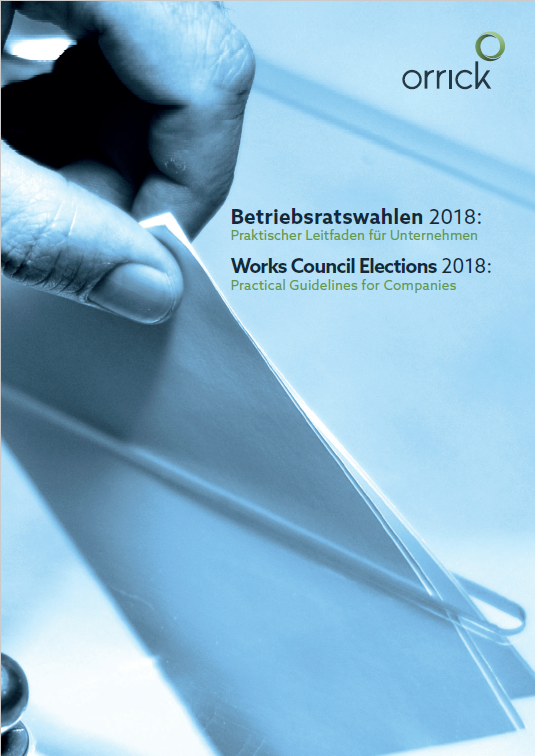In Germany, regular works council elections are held every four years. The next election period is quickly approaching, starting on March 1, 2018.
Companies with business in Germany should prepare for the election process and employee initiatives to elect a works council. Our bilingual guide, based on years of experience, provides practical tips and legal considerations, navigates you through the election process and helps you avoid pitfalls that can be costly.
To access the full guide, please click here. If you have any questions, feel free to reach out to André Zimmermann, Head of our German Employment Law Practice, or Mike Delikat, Chair of our Global Employment Law Practice.










